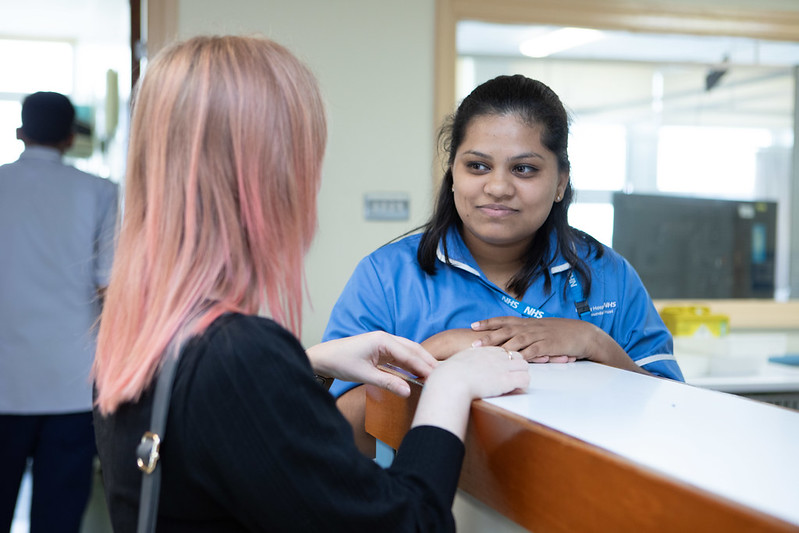Technology and information are key to managing diabetes: Natalie's story

Natalie, from Hertfordshire, advocates for better diabetes care in NHS services. She caught up with us about her journey with Type 1 diabetes, from diagnosis through treatment.
Natalie was diagnosed with Type 1 diabetes in her early 40s - later than most people who have the condition.
At first, her GP misdiagnosed her as having Type 2 diabetes due to her age – an error that had implications for her treatment plan and the advice she was given about how to manage her diabetes. This experience made Natalie aware of a gap in clinical staff knowledge about diabetes treatment, as well as a shortage of specialist diabetes care staff.
"The assumption is that if you're diagnosed with diabetes as an adult, then you're Type 2, and it's related to your lifestyle choices. But that isn't always the case.
"Ten years ago (when she was diagnosed) my GP didn't believe I was eating a balanced diet and told me to see a dietician. It was the dietician who insisted I must be Type 1 and told the GP to do an antibodies test".
Where is Natalie's care falling short, and how does this affect her?
Even now, 10 years later, Natalie says her care can be hit or miss.
The nurses she sees are 'great', but her diabetes consultant left her clinic and wasn't replaced for a long time.
Natalie also explained how there's a general lack of awareness of information on new treatments. A lot of the time, she's left to search for answers on her own, particularly related to new technologies available to help monitor her diabetes.
Knowledge is power
Using the right technology is key to helping Natalie and other people living with diabetes monitor and manage their condition. But Natalie told us that people aren’t always offered the right tools to help them. For example, Natalie’s treatment team provided her with a Continuous Glucose Monitor (CGM) to help monitor her levels. But Natalie has relatives in different parts of the country who also have diabetes, but haven’t been offered or adequately informed about this equipment.
Natalie also says that NHS specialists aren’t always aware of all the options available on the market, and that clinicians should be aware of what technology is available and how it works. “They aren’t trained on other new tech solutions that aren’t available on the NHS”, she explained. “Just because something isn’t free, it doesn’t mean that they can’t tell patients and pass on information”, to let them make informed decisions about their treatment.

"If you feel informed about your own health, then it's not as scary. You don't feel as out of control if you have as much information as possible", Natalie explained to us.
"You get burned out because you're exhausted, other things in life need your attention, and you struggle to keep on top of everything – technology could help that more".
Living with diabetes
Natalie had to adjust her career and lifestyle to help treat her diabetes. Her work is home-based and very flexible. But she had to build a career around her health after being diagnosed with diabetes, and she's only chosen jobs that let her to keep control of her health. "I'm lucky that I can do that", she says, "but that choice isn't available to everyone".
Natalie hopes that her experiences can help raise awareness of the challenges facing people who are diagnosed with Type 1 diabetes later in life.
How can care be improved?
Over 4.3 million people are living in the UK with a diabetes diagnosis. People with diabetes face the daily challenge of having to manage and monitor their condition.
People like Natalie told us about positive experiences with their diabetes care teams. However, some issues stood out regarding how support could be better, including access to information about their care, ensuring people are getting their annual reviews, getting the right medication at the right time and using technology.
Read our recommendations for how to improve diabetes care.
What's your story?
We rely on people's stories of health and care to help us improve services in England.
If you'd like to have your health or care story shared, for example on our website, in our newsletters or in the press, then get in touch.


